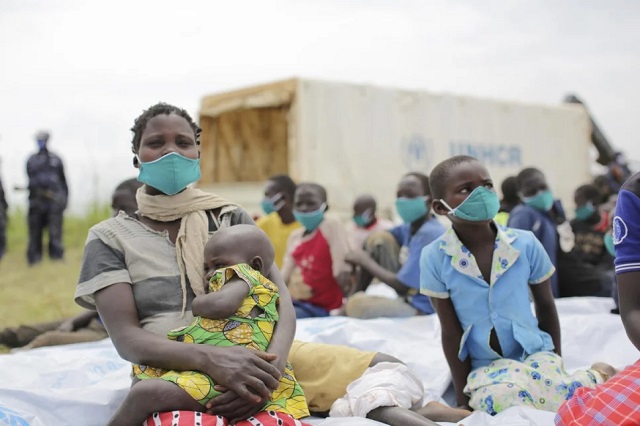
Kampala, Uganda | THE INDEPENDENT | Uganda has received a combined USD 5.6 million (about Ushs20 billion) from Sweden and Germany, as contribution towards the emergency needs of the refugee community in Uganda.
The government of Sweden provided USD 1.2 million (4.3 billion shillings), while USD 4.4 million (Ushs15.7 billion) to support the World Food Program (WFP) in Uganda’s food assistance and direct cash transfers came from Germany.
The donation is for the period from 2021 to 2023 as part of USD 41,342,000 flexible funding to Eastern Africa.
The United Nations agency commended Sweden and the Federal Republic of Germany for the contributions to food and cash support at a time when a surge of COVID-19 and its economic impact are threatening lives and livelihoods across the country.
The refugee agencies are increasingly finding it harder to raise funds for the refugees as donor countries reduce their contributions due to economic challenges arising from the Covid-19 pandemic.
“Refugees in Uganda currently receive only 60 percent of a full ration, or the equivalent in cash, due to reduced funding. WFP needs a total of USD 220 million this year for refugees but has received only 30 percent so far,” says the UNWFP Uganda office.
Uganda hosts one of the largest refugee populations in the world (more than 1.2 million) and is lauded for having some of the world’s most progressive refugee policies, that include providing them job and investment opportunities like land for cultivation.
The contributions will help WFP to provide food assistance or cash-based transfers to refugees. Refugees living in settlements receive monthly in-kind food assistance consisting of maize, beans, fortified oil and salt or cash to buy food, which injects money into local economies.
The office is worried about the reducing support and calls for more efforts to ensure the refugees survive especially in the second wave of Covid-19.
“We cannot play down the threat of hunger that still looms over refugees,” said WFP Uganda Country Director El-Khidir Daloum. “It is important that donors continue to fund Uganda’s refugee response. If refugees are battling hunger daily, this undermines moves toward self-reliance under the Comprehensive Refugee Response Framework.”
Food insecurity among refugees, measured as the share of households that have run out of food, is 64%, much higher than the 9% which is recorded among their host communities according to a survey by the UN Office for the Coordination of Humanitarian Affairs, UNOCHA.
The refugees have been forced to reduce the amount and frequency of meals eaten in a day, while other effects like survival sex and child marriage are becoming more common.
“The challenges refugees face during the COVID-19 pandemic are enormous and the situation is deteriorating. Germany is committed to keeping up our cooperation with WFP – and our support to Uganda’s refugee response – to ensure that refugees live a life free from hunger. But we need more donors to join us,” said Matthias Schauer, German Ambassador to Uganda.
Per Lindgärde, Swedish Ambassador to Uganda prayed to the international community not to forget the most vulnerable like the refugees in the face of Covid-19.
In 2020, Sweden gave WFP US$4 million towards emergency cash transfers to over 62,000 children and pregnant and breastfeeding women in West Nile, buffering the impact of COVID-19 and reduced rations.
Germany, through the Federal Ministry for Economic Cooperation and Development, also supports WFP’s school feeding, nutrition, and agriculture programmes, committing €16.5 million in valuable multi-year funding for 2018 – 2023.
In addition to the contributions from Germany and Sweden, WFP Uganda has so far this year received US$61 million and maize meal worth $1 million from the United States, €4.5 million from ECHO, US$1.6 million from Canada, US$1 million from Japan and 4,500 metric tons of rice worth US$4 million from the Republic of Korea.
*****
URN
 The Independent Uganda: You get the Truth we Pay the Price
The Independent Uganda: You get the Truth we Pay the Price


